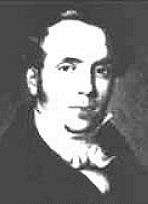David Nasmith

David Nasmith
David Nasmith (March 1799 – 17 November 1839) founded The City Mission Movement in the UK, the US and in Europe.
Biography
Born in Glasgow, Scotland, Nasmith began life in manufacturing as an apprentice. He set up The Young Men's Society for Religious Improvement (1824),[1] Glasgow City Mission (1826), Edinburgh City Mission (1832), and London City Mission (1835). He "died poor", in 1839, aged 40, in Guildford, Surrey, England.
Influence
City and Gospel missions, also known as Gospel Rescue Missions in the USA, are practical religion outside the walls of the church and an example of Evangelical parachurch organisations.

Nasmith's gravestone in Bunhill Fields, London
"David Nasmith originated the Young Men’s Christian Association in Glasgow, and set the institution at work in other cities and around the world. His life work was noted for being instrumental in welding the various denominations together for useful purposes. In 1821 he became secretary of the “Religious Societies of Glasgow” at the “Institution Rooms,” 59 Glasswork Street. Nasmith possessed a marvelous power of organization and capacity for work. He was a true reformer, and thoroughly sincere in his endeavors to benefit others. He founded City Missions and Young Men’s Christian Associations". (A. G. Callant, author of Saint Mungo's Bells)[2]
"Clubs and associations, missions and societies were in his blood. So many of them could claim him as founder that it is doubtful whether, at the age of thirty-six, he could have kept an accurate record of them all. As a founder of missions, it would be hard to find his equal." (Phyllis Thompson, author of To the Heart of the City)[3]
References
- ↑ "History of YMCA Glasgow.", ymcaglasgow.org
- ↑ Saint Mungo's Bells; or Old Glasgow Stories Rung Out Anew, Callant A G, David Bryce & Son, 1888.
- ↑ To the Heart of the City, Phyllis Thompson, Hodder & Stoughton Religious (1 May 1985), ISBN 978-0-340-37427-6
External links
City Missions worldwide
This article is issued from
Wikipedia.
The text is licensed under Creative Commons - Attribution - Sharealike.
Additional terms may apply for the media files.